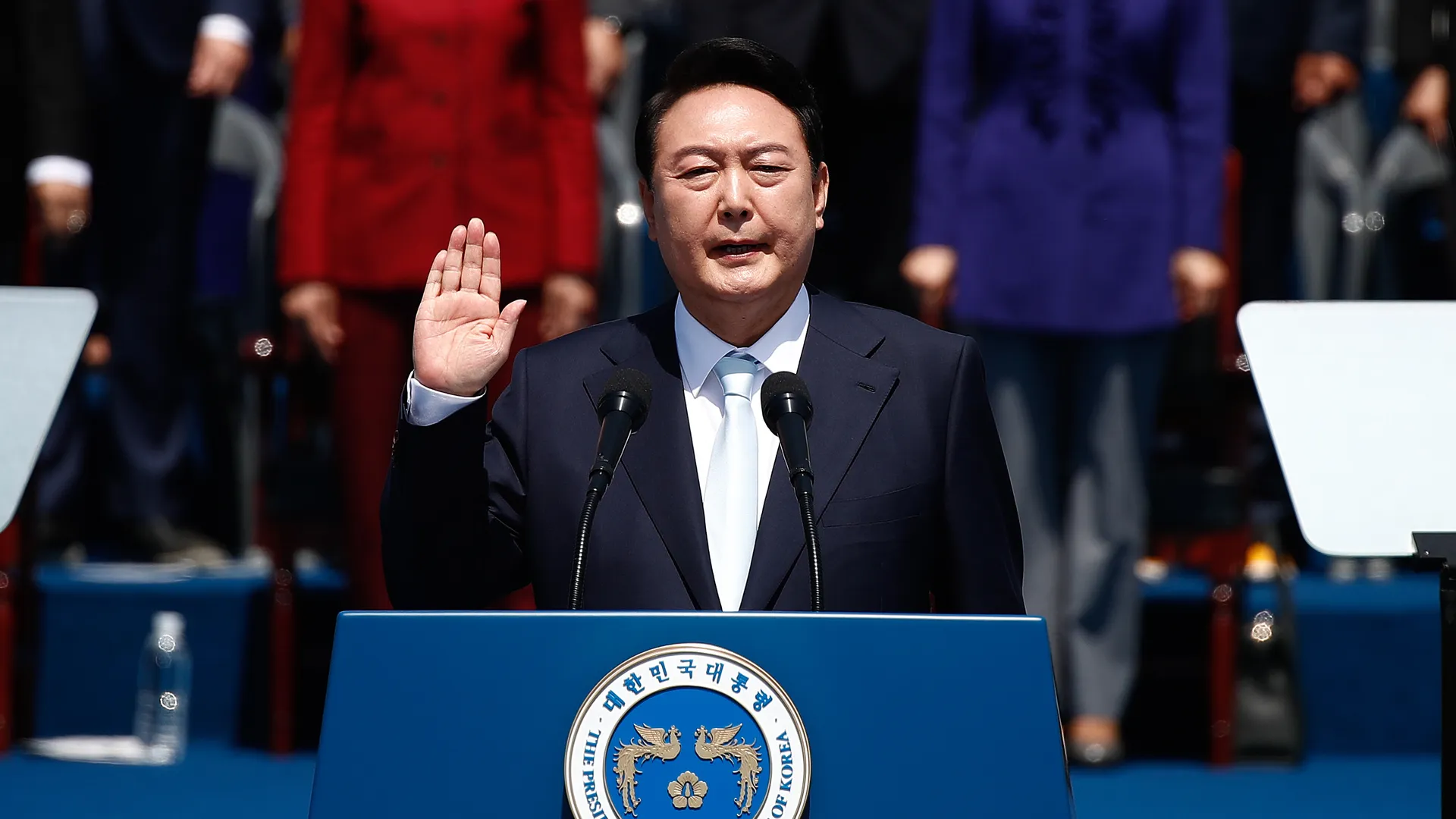In an address on Tuesday, President Yoon Suk Yeol disclosed South Korea‘s intent to allocate approximately $7 billion toward artificial intelligence ventures by 2027, highlighting the country’s aspiration to lead the charge in cutting-edge semiconductor technologies.
It’s worth noting that South Korea boasts Samsung and SK Hynix, the globe’s foremost manufacturers of memory chips, including the top-tier high-bandwidth memory (HBM) vital for fueling AI-driven hardware.
According to an AFP report published Tuesday, the semiconductor industry represents a fundamental component of South Korea’s export-led economic model. President Yoon articulated his administration’s vision for the nation to assume leadership in AI chip development during a high-level gathering of officials and tech sector leaders.
“It is no exaggeration to say that the future of the semiconductor industry depends on AI,” Yoon said, according to his office.
“We will invest 9.4 trillion won ($6.94 billion) in the AI and AI semiconductor fields by 2027,” and set up a separate 1.4 trillion won ($1 billion) fund “to help the growth of innovative AI semiconductor companies”, he added.
Yoon’s office confirmed that executives from Samsung, SK Hynix, leading tech company Naver, and AI chip startup SAPEON were among the attendees at the meeting.
Semiconductors are the indispensable core of the global economy, permeating various consumer goods such as kitchenware and smartphones, as well as critical sectors like automotive and defense industries.
And demand for the advanced chips that power AI systems has skyrocketed thanks to the success of ChatGPT and other generative AI products.
Fueled by geopolitical tensions linked to Taiwan and the broader US-China rivalry, Seoul and Tokyo are engaged in a race against Washington and major European powers to ramp up domestic chip production through significant investments and state-backed incentives.
At present, the AI chip sector is predominantly controlled by the Silicon Valley giant Nvidia, with SK Hynix serving as a supplier of HBM chips to the company.
Read also: South Korea Launches 2nd Intelligence Satellite Into Orbit
Yoon underscored at the Tuesday meeting that South Korea is ambitiously pursuing the goal of becoming a trailblazer in AI technology, aiming to surpass its current prominence in memory chips and dominate the forthcoming AI chip market.
“The semiconductor competition taking place now is an industrial war and an all-out war between nations.”
Yoon’s comments followed a day after Washington revealed plans to offer up to $6.6 billion in subsidies to Taiwanese powerhouse TSMC, as part of an initiative aimed at incentivizing chip companies to produce their cutting-edge products in the United States.
Japan recently disclosed intentions to allocate up to $3.9 billion in subsidies to a chip venture as part of its efforts to rejuvenate its semiconductor industry.
China has been encouraging its domestic chip industry for years to reduce its reliance on Western technology, especially in response to US restrictions on the most advanced chips.
Semiconductors are South Korea’s leading export.
According to figures released by the trade ministry, semiconductor exports soared to $11.7 billion in March, marking their highest point in almost two years and representing one-fifth of South Korea’s overall exports.

